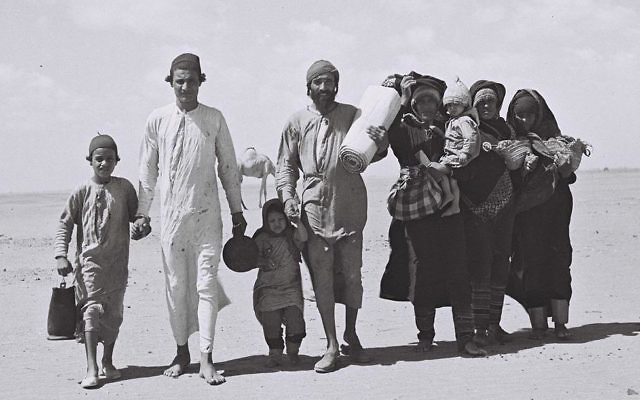Regev Pushes Mizrahi Recognition
Above: The biggest arrival of Mizrahim occurred in the 1950s and 1960s; today, half of Israeli Jews have Mizrahi ancestry.
By Eli Sperling
In the 1950s and ’60s, roughly 1 million Mizrahim (Eastern Jews) emigrated to Israel. Not only dramatically increasing the young country’s population, they also brought with them a foreign, Middle Eastern cultural paradigm that stood in stark contrast to Israel’s largely Ashkenazi political and cultural origins.
It was not until Menachem Begin took office as Israel’s first Likud prime minister in 1977, in part because of a calculated outreach to the disenfranchised Mizrahi community, that Mizrahi culture and political aspirations began to infiltrate Israel’s mainstream.
Before the late 1970s, Mizrahi music was largely available in Israel only in the form of bootlegged cassette tapes in markets and bus stations. After Begin’s election, however, all that changed.
In 1982, after the release of iconic Yemenite-Israeli singer Zohar Argov’s seminal album, “Elenor,” Argov historically performed his hit single “Perach Be’Gani” on Israeli television.
In 1984, famed Iraqi-Israeli author Eli Amir published a semiautobiographical novel, “Scapegoat.” A critical portrayal of the manner in which Mizrahi Jews were cruelly absorbed into Israeli society, Amir’s book sparked a long-lasting dialogue about Mizrahim in Israel.
Also in 1984, former Sephardic Chief Rabbi Ovadia Yosef (1920-2013) founded SHAS. A conservative political party, SHAS represented the interests of Israel’s Mizrahim. Gaining lasting support under its platform of integrating Mizrahim into the fold of mainstream Israeli society, SHAS likewise maintained the traditional social and religious values of this community.
Currently, SHAS, although a weakening entity, has members in the Knesset who align themselves with the conservative Likud party, headed by Prime Minister Benjamin Netanyahu.
Today, roughly half Israel’s Jewish population is of Mizrahi decent. The Israeli political landscape is likewise more proportionately representative of Israel’s demographic reality.
Israeli Minister of Culture and Sports Miri Regev, a Likud member who is of Moroccan-Jewish heritage, is carrying the torch of advocating state support of Mizrahi culture and society in Israel, along with her numerous controversial positions.
This year alone, Regev’s initiative has included pushing Israeli Army Radio to play more Mizrahi music, providing government sponsorship of a Mizrahi Music Festival and lambasting prominent Israeli film critic Gidi Orsher for posting racist depictions of Mizrahi culture on social media.
A favorite punching bag of Israel’s liberal media outlets, Regev, for better or for worse, is pushing the cultural dialogue in Israel toward being more representative of a changing society.
Eli Sperling is an Israel specialist and the assistant program coordinator for the Center for Israel Education (www.israeled.org).




comments